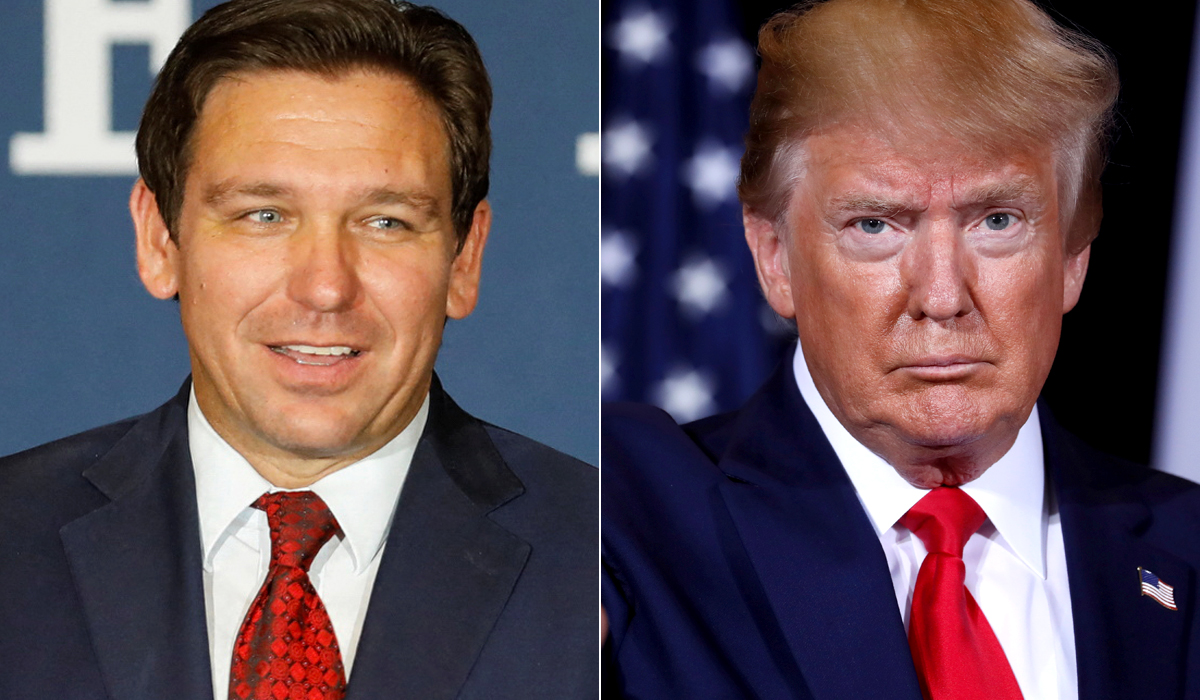


California Republicans may have no say in general elections for national and statewide office, but they can still matter quite a lot in a presidential-primary contest. As the calendar presently stands, the home state of House speaker Kevin McCarthy will vote on Super Tuesday, March 5, 2024 — 375 days from today — and award 169 delegates, 13.6 percent of the 1,234 delegates needed to win the Republican nomination. Delegates are awarded on a winner-take-all basis, albeit with only ten of them awarded statewide, and the rest awarded to the winners of each congressional district. A Republican winning that primary by a wide enough margin to carry most of the districts could go a long way in a hurry toward putting the race away early.
So, it is newsworthy that the latest BerkeleyIGS Poll for the Los Angeles Times shows a major swing toward Ron DeSantis, who now holds an eight-point lead over Donald Trump among California Republicans. DeSantis leads Trump in the poll 37 percent to 29 percent, a reversal from the same poll taken in August 2022, when Trump led DeSantis 38 percent to 27 percent. Nikki Haley runs third at 7 percent, and nobody else is over the four percent who back Liz Cheney. Chris Sununu polls at zero. However, 11 percent say they are undecided, a measure of how much flux remains in voter preferences a year out, in a race with only three announced candidates, in a poll where 27 percent of respondents were either undecided or backing someone other than the top three potential contenders.
Republican men account for the bulk of the movement. DeSantis has opened up a 16-point lead among men, 43 percent to 27 percent, a massive swing from Trump’s 18-point lead, 41 percent to 23 percent, in the previous poll. Trump’s more-modest lead among women has shrunk from five points (36-31) to one point (31-30), with 27 percent backing other candidates and 12 percent undecided.
The education gap is particularly pronounced: DeSantis leads 43 percent to 15 percent among Republican voters with postgraduate degrees, 39 percent to 21 percent among college graduates, and 37 percent to 31 percent among people with some college or trade school educations, while Trump leads 45 percent to 30 percent among those with no more than a high-school diploma.
The ideological breakdown is interesting: Trump predictably leads DeSantis among self-described moderates, 23 percent to 19 percent, although a majority of those are behind other candidates or undecided. Trump also leads DeSantis 45 percent to 38 percent among “strongly conservative” voters, although his position has eroded there. But DeSantis, who trailed Trump among “somewhat conservative” voters in the last poll, now leads 51 percent to 17 percent in that category. DeSantis leads Trump by eleven points among people who voted for Trump in 2020.
The poll is also yet another warning sign to Joe Biden in the event that he faces a real primary challenger. Even with rising approval ratings statewide and a predictably wide lead over any Republican in the deep-blue state, Californians — by a margin of 57 percent to 37 percent — don’t want him to run again. Unlike in New Hampshire, Biden still has a majority of his party open to another run — 57 percent — but 39 percent are opposed.
As the Times notes, the poll “surveyed 7,512 California registered voters online in English and Spanish, including a weighted sample of 1,755 registered Republicans, from Feb. 14 to 20 . . . the results are estimated to have a margin of error of 2 percentage points in either direction for the full sample and 3.5 percentage points for the Republican sample.”
